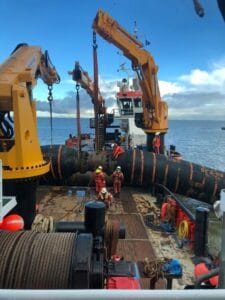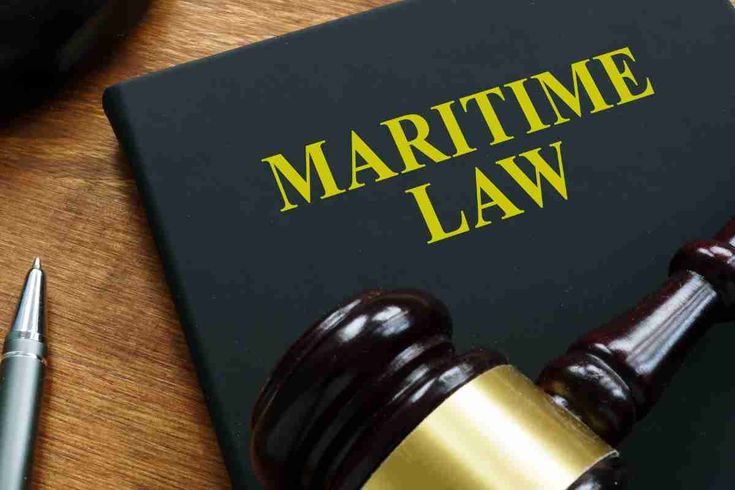Maritime Law Attorneys: Expert Legal Support for Maritime Disputes and Injuries

Introduction to Maritime Law Attorneys
Maritime law, often called admiralty law, governs activities and disputes on navigable waters, from oceans to inland waterways. Whether you’re an injured maritime worker, a shipping company facing a cargo dispute, or a cruise ship passenger seeking compensation, maritime law attorneys provide specialized legal expertise to protect your rights. These professionals understand the intricacies of federal and international maritime regulations, ensuring fair resolutions for complex cases. This article explores the critical role of maritime law attorneys, their services, and why their expertise is essential for various stakeholders in the maritime industry.
What Is Maritime Law?
Maritime law regulates legal matters involving vessels, crews, passengers, and cargo on navigable waters. It encompasses federal laws like the Jones Act and the Longshore and Harbor Workers’ Compensation Act (LHWCA), as well as international treaties such as the International Convention for the Safety of Life at Sea (SOLAS). Maritime law attorneys specialize in applying these regulations to resolve disputes, secure compensation, and ensure compliance for their clients.
For example, the Jones Act protects seamen injured due to employer negligence, while the LHWCA covers dockworkers and harbor employees. Maritime law also addresses environmental violations, vessel collisions, and contractual disputes, making it a complex field requiring expert legal guidance.
Who Needs a Maritime Law Attorney?
Maritime law attorneys serve a diverse group of clients, including:
Injured Maritime Workers: Seamen, fishermen, and offshore workers seeking compensation for injuries under the Jones Act or LHWCA.
Shipping Companies and Vessel Owners: Businesses resolving cargo disputes, vessel damage claims, or regulatory compliance issues.
Families of Deceased Maritime Workers: Relatives pursuing wrongful death claims after maritime accidents.
Cruise Ship Passengers and Employees: Individuals seeking justice for injuries, assaults, or unsafe conditions on cruise ships.
Port and Terminal Operators: Companies addressing liability, property damage, or worker injury claims.
Maritime Insurance Companies: Insurers navigating coverage disputes or subrogation claims.
Charter and Recreational Vessel Owners: Individuals resolving disputes over charters, accidents, or property damage.
Shipbuilders and Marine Contractors: Professionals handling contract disputes or construction-related claims.
Each group faces unique challenges, and maritime law attorneys tailor their services to meet specific needs.

Key Services Provided by Maritime Law Attorneys https://www.mlaus.org/
Maritime law attorneys offer a wide range of services to address the diverse needs of their clients. Here are some of their core offerings:
1. Personal Injury and Jones Act Claims
Maritime workers face significant risks, from slippery decks to heavy machinery accidents. Under the Jones Act, injured seamen can seek compensation for medical expenses, lost wages, and pain and suffering. Maritime law attorneys evaluate claims, gather evidence, and negotiate with employers or insurers to secure fair settlements. For example, a deckhand injured due to faulty equipment could recover substantial damages with the help of a skilled attorney.
2. Longshore and Harbor Workers’ Compensation
Dockworkers, stevedores, and harbor employees may qualify for benefits under the LHWCA. Attorneys assist with filing claims, appealing denials, and pursuing third-party lawsuits if negligence by another party contributed to the injury.
3. Cargo and Shipping Disputes
Shipping companies and vessel owners often face disputes over damaged cargo, delayed shipments, or breached contracts. Maritime law attorneys negotiate settlements, draft agreements, and represent clients in court to resolve these issues efficiently.
4. Vessel Collisions and Accidents
Collisions, groundings, or allisions (vessel striking a stationary object) can lead to property damage, environmental harm, or injuries. Attorneys investigate accidents, determine liability, and pursue claims against responsible parties.
5. Wrongful Death and Survivor Claims
Families of deceased maritime workers may file wrongful death claims to recover compensation for their loss. Attorneys guide families through the legal process, ensuring their rights are protected under maritime law.
6. Environmental Compliance and Violations
Maritime activities often involve strict environmental regulations, such as the Oil Pollution Act of 1990. Attorneys defend clients against pollution claims or help recover damages from environmental incidents.
7. Cruise Ship Litigation
Cruise ship passengers and employees may face injuries, sexual assaults, or unsafe conditions. Maritime law attorneys hold cruise lines accountable, navigating complex jurisdictional issues to secure justice.
8. Contract Drafting and Disputes
From ship charters to crew agreements, maritime contracts require precision. Attorneys draft, review, and litigate contracts to protect clients’ interests.
Why Hire a Maritime Law Attorney?
Hiring a maritime law attorney offers several advantages, especially given the complexity of admiralty law:
Specialized Expertise: Maritime law involves unique regulations that general attorneys may not fully understand. Experienced maritime lawyers know the nuances of the Jones Act, LHWCA, and international treaties.
Maximizing Compensation: Attorneys negotiate with insurers and employers to secure the highest possible settlements for injuries or damages.
Navigating Jurisdictional Challenges: Maritime cases often involve multiple jurisdictions, including federal and international laws. Attorneys ensure proper legal procedures are followed.
Protecting Your Rights: Whether you’re a worker, business, or passenger, an attorney advocates for your interests, preventing exploitation by powerful entities like insurers or shipowners.
For example, a maritime worker injured offshore might face resistance from their employer’s insurer. A skilled attorney can counter these tactics, ensuring fair compensation.
How to Choose the Right Maritime Law Attorney
Selecting the right attorney is critical for a successful outcome. Follow these steps to find the best maritime law attorney for your needs:
Check Experience and Specialization: Look for attorneys with extensive experience in maritime law, particularly in cases similar to yours (e.g., Jones Act claims or cargo disputes).
Review Reputation and Success Rate: Read client testimonials and case results on platforms like Avvo to gauge an attorney’s track record.
Evaluate Communication: Choose an attorney who communicates clearly and responds promptly to your inquiries.
Consider Location: Local attorneys understand regional maritime regulations and court systems. Search for “maritime law attorney near me” to find qualified professionals in your area.
Discuss Fees: Many maritime attorneys work on a contingency fee basis, meaning you pay only if they win your case. Confirm fee structures upfront to avoid surprises.
Common Questions About Maritime Law Attorneys
What types of compensation can I recover in a maritime injury case?
You may recover medical expenses, lost wages, pain and suffering, and future earning losses. In wrongful death cases, families may claim funeral costs and loss of financial support.
How long do maritime law cases take?
Settlements may take 6-12 months, while complex cases requiring trials can last over a year. Your attorney will provide a timeline based on your case’s specifics.
Can cruise ship passengers sue for injuries?
Yes, passengers can sue for injuries caused by negligence, unsafe conditions, or assaults. Maritime law attorneys navigate the unique legal challenges of cruise ship cases.
Do maritime law attorneys handle international cases?
Yes, many attorneys specialize in international maritime law, addressing disputes under treaties like SOLAS or the Hague-Visby Rules.
Call to Action
Don’t let a maritime legal issue overwhelm you. Whether you’re an injured worker, a shipping company, or a cruise ship passenger, a maritime law attorney can provide the expertise you need to navigate complex laws and secure justice. Contact a qualified attorney today to discuss your case. Search for “best maritime law attorney near me” to find top-rated professionals ready to help.
People Also Read: https://attorneywala.com/houston-maritime-injury-attorney/?amp=1

2 thoughts on “Maritime Law Attorneys”